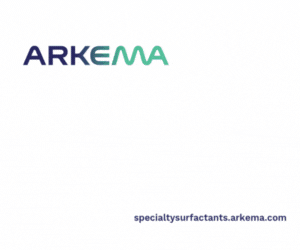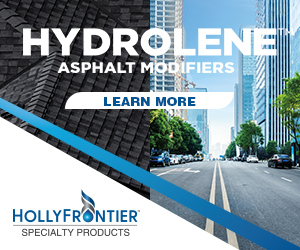If you came upon an asphalt paving operation this past May on Hall Street in St. Louis, Missouri, you would have seen a big white trailer with “Federal Highway Administration” printed on the side. The trailer, the FHWA Mobile Asphalt Mixture Testing Laboratory was testing and evaluating the asphalt on the latest warm mix asphalt (WMA) project.
Mobile Showcase
The St. Louis warm mix work is just one of many evaluations or promotions that the Mobile Lab has done during the last seven years. The Lab makes it easier for researchers and practitioners to gather data, test, and evaluate asphalt pavement and evaluate developments in new technology.
The Mobile Lab not only promotes and implements new asphalt technology, but evaluates new products and predicts their performance. New technology in the Lab includes the simple performance test (SPT) equipment, which is just one example of the type of cutting-edge technology being used.
The Mobile Lab’s array of testing equipment and technologies also assists state highway agencies with volumetric and performance testing of asphalt mixes to provide input for the Mechanistic Empirical Pavement Design Guide. “Over the last few years, our primary focus has been supplying information for the new Design Guide,” says Chuck Paugh, Mobile Lab Manager. “We have a Performance Tester in the trailer and we input that information into the Design Guide software.”
The Mobile Lab also features an array of rapid materials testing technology for both fine and coarse aggregates, infrared detection equipment to determine saturated surface dry conditions, aggregate absorption values and apparent specific gravity. This includes the Aggregate Imaging System (AIMS) video imaging device, which measures properties of both fine and coarse aggregates, as well as infrared detection equipment to determine saturated surface dry condition (SSDetect) and apparent specific gravity (Corelok).
Conventional hot mix asphalt tests are also run in the lab, including volumetric testing for Superpave mixtures and density measurements.
Supports State Agencies
The Mobil Lab continues to refine test procedures for the SPT and help state agencies conduct local materials characterization for the new design procedure, as well as test and evaluate new warm mix asphalt technologies. One of the Mobile Lab’s greatest assets is that it helps introduce new technology and test procedures into real world construction projects. On-site project activities include:
-
Validating asphalt mixture testing and material characterization equipment;
-
Evaluating asphalt mixes in the field during construction;
-
Introducing and implementing performance related and percent within limits specification standards;
-
Evaluating new asphalt pavement materials and testing methodologies and publicizing findings in professional journals and conference proceedings.
Dynamic Modulus Test
The Mobile Lab conducts a three-point Superpave mix design replication of the agency approved mix design. At this time, additional gyratory specimens are manufactured for testing in the SPT device. The dynamic modulus (E*) test is conducted at a range of frequencies and temperatures.
The E* values are used as materials inputs into the Design Guide software to evaluate a structural pavement design. The NCHRP 9-29 research project developed the SPT with the goal of incorporation into the Superpave mix design process. The SPT is capable of testing temperatures from 4º to 60º C and frequencies from 0.01 to 25 hertz. The SPT is also capable of performing dynamic creep (flow number) and static creep (flow time) tests.
Design Guide Workshops
The Mobile Lab participated in work-shops conducted by the FHWA Design Guide Implementation Team. The workshops for “materials inputs” into the Design Guide software are being conducted regionally around the United States. The Mobile Lab provided participants the opportunity to observe the SPT in operation and obtain a brief description of tests and test values obtained. “We also incorporate Design Guide analysis and predictions into our final project reports,” says Matt Corrigan, Mobile Lab Program Manager.
NCHRP Projects
The Mobile Lab was involved with a phase of the evaluation of the SPT on NCHRP 9-29. A study was conducted to evaluate the similarity of the data produced by different operators and different devices.
During NCHRP 9-22 Beta Testing and Validation of Hot Mix Asphalt Performance-Related Specifications, the Mobile Lab assisted researchers by collecting test data for input into the software developed for this project.
The Mobile Lab also participated in a ruggedness study of the dynamic modulus and flow number tests. A ruggedness study determines which controllable testing conditions most influence test results and evaluates the appropriateness of tolerance limits within the test methods.
Warm Mix Asphalt Trial Project
The Mobile Lab’s recent warm mix asphalt trial project on Hall Street in St. Louis, Missouri, included three WMA technologies (Sasobit, Evotherm and Aspha-min) and a conventional HMA. “The project was an endurance test for equipment and technicians,” says FHWA’s Corrigan. “The Mobile Lab operated in shifts, 24 hours a day, to accommodate the night paving operation and to obtain the necessary amount of sampling and testing.”
For each night of paving, says Corrigan, the mixture was sampled at the plant site and 61 specimens were manufactured in the Superpave gyratory compactor. In addition, 15 five-gallon buckets of loose mix and five gallons of asphalt binder were sampled for later testing and evaluation.
The testing performed on the mixes included: volumetric properties, tensile strength ratio, dynamic modulus, flow number and Hamburg wheel tests. “This was the first WMA construction project for the Mobile Lab,” says Corrigan, “and it provided a valuable experience for the project engineer and the lab technicians.”
Weekly Routine
The Mobile Lab is normally on-site from four to six weeks and hosts an open house for visitors at least one day per week during the visit. After a visit has been requested by a state highway agency, the Mobile Lab will travel to one of the state’s highway construction sites. The lab staff will then use the Mobile Lab’s equipment to test local materials.
The Mobile Lab’s visit begins with a half-day workshop on asphalt pavement technology for state DOT employees, FHWA Division Office and Federal Lands Highway staff, and individuals from local highway agencies, universities and state asphalt associations. After the site visit and the lab tests, Mobile Lab prepares a report for the state with feedback on the data results and presents it during a close-out workshop.
Implementing New Technology
A good example of the Mobile Lab’s successes was its site visit to Nashua, Iowa. It assisted with performance testing of a Superpave mix design for U.S. 218. The mix was also tested by the Iowa DOT, Iowa State University, the North Central Superpave Center and by Mathy Construction.
The five organizations then met to study the test results and look at how differences in testing equipment affected results. The Iowa DOT used simplified testing procedures to reduce the specimen preparation time. Comparing test results with the Mobile Lab’s results helped the Iowa DOT to analyze and perfect their procedures. “Working with the Mobile Lab has put us ahead of the curve for understanding performance testing,” says Mike Heitzman of Iowa DOT.
As the Mobile Lab fulfills its mission of promoting and implementing new technology, Chuck Paugh believes that the most interesting project is usually the most current project. “In the past, it’s been the Performance Tester,” he says. “Now it’s warm mix technology.”














